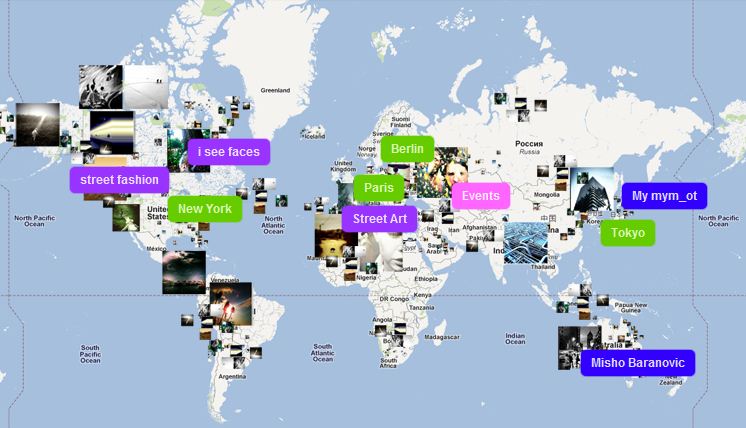 “The reality is that most digital communities fail”. These sobering words are from Russell Graham, head of digital and social media at PR firm Lansons. Graham points out that although the rise of social media allows people to form groups more quickly, on a greater scale and without the need for physical proximity, if brands want to build their own networks, they have to understand the fundamentals of human psychology. Graham says the reasons most digital communities fail is usually due to one of three crucial elements not being addressed; the needs of the brand, the needs of the members; plus a fundamental “reason for being” in the first place.
“The reality is that most digital communities fail”. These sobering words are from Russell Graham, head of digital and social media at PR firm Lansons. Graham points out that although the rise of social media allows people to form groups more quickly, on a greater scale and without the need for physical proximity, if brands want to build their own networks, they have to understand the fundamentals of human psychology. Graham says the reasons most digital communities fail is usually due to one of three crucial elements not being addressed; the needs of the brand, the needs of the members; plus a fundamental “reason for being” in the first place.
“At a brand level, we build communities in order to keep customers for longer, persuade customers to spend more, acquire new customers or reduce service or marketing costs. But if you only satisfy what the brand wants, you’ll probably end up doing something more akin to content marketing or a DM campaign.
“Understanding psychological needs is at the core of human engagement across all domains. Members’ needs might include solving problems, seizing opportunities they believe exist, pursuing interests, enhancing their own social standing or simply a sense of wellbeing.
“The final (and perhaps most important consideration) is that, as an entity, communities want things and to be successful there must be some benefit in members banding together into groups to achieve these things. This might include the exploration of a topic together, mutual support, greater influence over our environment, or even just a sense of belonging.
“Whilst we have a massive range of digital community tools and platforms at our disposal, we must never forget that successful online communities cannot be manufactured for the purposes of business alone and must address all three community success factors simultaneously in order to thrive and survive.”
Succeeding in the online environment is common sense in many ways. As Pamela Lyddon, owner of agency Bright Star Digital, points out, many people are very scared of the “online world” and “social media” like it’s some other world that they will never encounter and yet they are probably on it every day. Lyddon adds: “Building communities is not that different to the offline world, it’s about keeping people up to date, making sure that it is relevant to them and ensuring you make it a two-way thing. I always get annoyed with the big brands who are happy to use social media as a way to announce things, but never will engage. It’s like they have a loud speaker, but they never stop and listen to what is being said back to them. Celebrities are a great example of this – they know how to use this to their advantage. Step forward Mrs Kim Kardashian West. A great example of a brand who is great at engaging and that is how she breaks the internet.”
Top tips for building digital communities
From Bennett Golder, digital account director at PR firm Weber Shandwick:
1. Make sure your channels are fit for purpose. The design must reflect your company’s branding, all information must be filled in, and make sure to post engaging content.
2. Include paid advertising. This will encourage people to follow your brand. Regardless of channel, these campaigns can be micro-targeted to ensure you’re reaching the type of people most likely to engage with your brand.
3. Have a social purpose. Social media engagement shouldn’t just be an afterthought – it needs to be considered alongside a brand’s media engagement strategy. Why are they on social media and why would a person choose to engage with their brand online? If they’re not providing users with something interesting, informative, or valuable, then users won’t engage with their brands; having a lot of followers is great, but if they’re not engaging, you’re not getting anything out of it.
From Gerald Heneghan, head of content at agency Roland Dransfield PR:
4. Spend time. One thing many newcomers to social fail to take into account is the time and effort required to do things properly. Increasingly, networks have moved away from offering things up on a purely chronological basis and instead are relying on algorithms to prioritise posts with a view to giving users more of what they want to see and less of what they don't. You can't just do a “bit of social” every now and again and expect anything to stick. To become a regular feature of your key audiences' feeds requires a commitment to making yourself valuable, interesting and engaging.
5.Don’t rely on automation. This can quickly lead to a social account that's devoid of personality – and savvy users will certainly be able to tell.
From Nik Thakkar, brand strategist:
6. Understand your community. And build on that strategically, transparently and openly.
 7. Identify ambassadors: Influencer relations and identifying ambassadors has never been so important. The value of press is declining by the day (a solid example is the imminent transformation of Style.com to a retail platform) and consumer trust has narrowed to the extent to which even major influencers (ie, big Instagrammers with more than a million followers) have diluted and commercialised their online presence so much that it is advisable for brands to be looking at more niche and specific brand partners and digital influencers.
7. Identify ambassadors: Influencer relations and identifying ambassadors has never been so important. The value of press is declining by the day (a solid example is the imminent transformation of Style.com to a retail platform) and consumer trust has narrowed to the extent to which even major influencers (ie, big Instagrammers with more than a million followers) have diluted and commercialised their online presence so much that it is advisable for brands to be looking at more niche and specific brand partners and digital influencers.
From Jennifer Reid, director at The CommsCo:
8. Stay niche. If you spread yourself too thin and begin posting on too many topics, your network will become vast and your messages diluted.
9. Engage. This doesn’t have to be limited to “liking” or retweeting. Add a comment, or make a suggestion.
10. Ask! If you don’t ask, you may not get. So if you’ve got content that you want to distribute, try getting in touch with relevant influencers directly on social networks to ask if they will take a look and share with their circles. You’ve got nothing to lose.
From Paul Sutton, independent digital media consultant:
11. Add value. No one will be interested in your efforts to build a network if you don't post things that interest, inform, excite or entertain them. Have an opinion and be prepared to share it.
12. Be interested. Social platforms are called networks for a reason. If you want to be successful you have to take an interest in what others are talking about and make an effort to converse on others' terms. Forget your own agenda.
PR Masterclass: The Intersection of PR and GEO
Wednesday 25th February, both virtual and in person tickets are available.
PR MasterclassIf you enjoyed this article, sign up for free to our twice weekly editorial alert.
We have six email alerts in total - covering ESG, internal comms, PR jobs and events. Enter your email address below to find out more:





